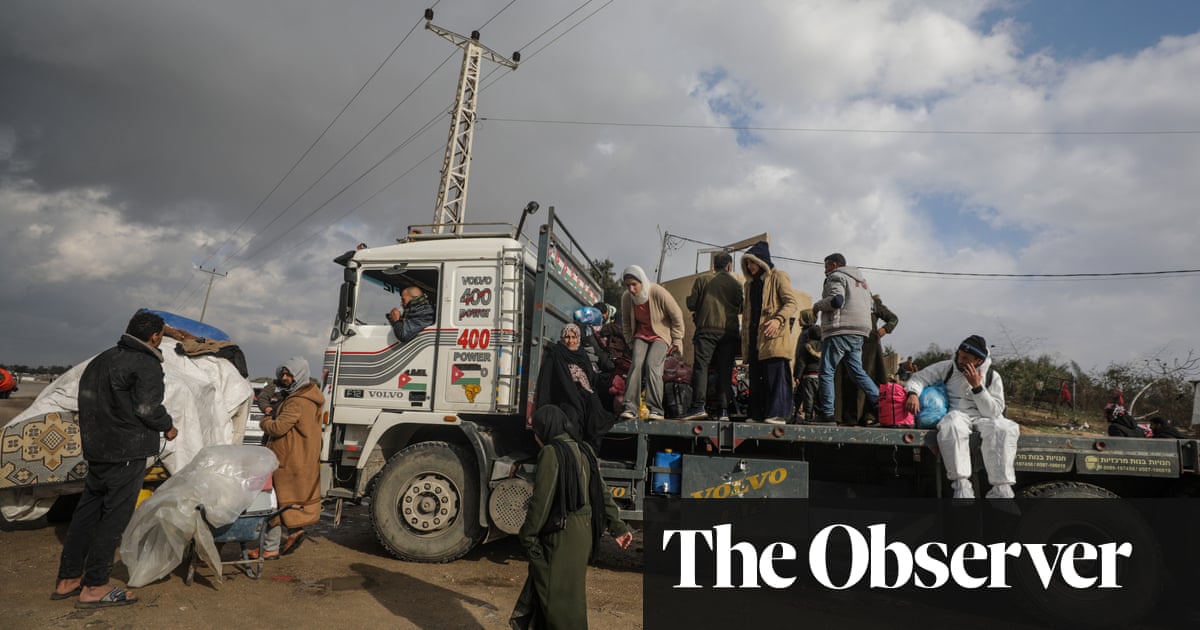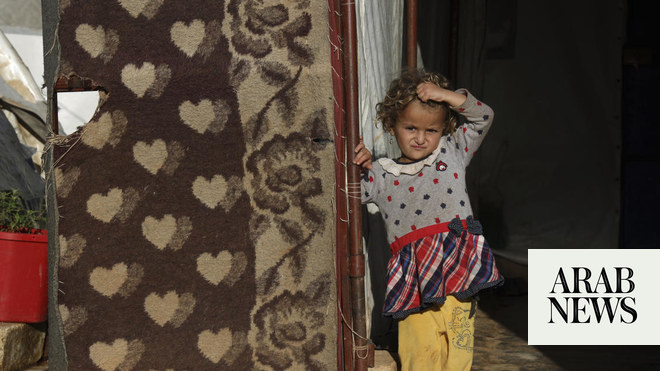
A UN conference on Monday raised money for basic services, ranging from food assistance and medical care to sanitation, for 5 million refugees in the Gaza Strip, West Bank, Jordan, Lebanon and Syria.
After the session, the UN was tallying how much was pledged by countries against this year’s shortfall of $250 million facing the UNRWA, which leads relief efforts for Palestinian refugees.
AMMAN: Palestinian refugees in Jordan and across the Middle East fear further cuts in aid after the US raised doubts about its commitment to the United Nations relief program.
US President Donald Trump has vowed to slash funding for the UN Relief and Works Agency unless there are political compromises by the Palestinian leadership.
A UN conference on Monday raised money for basic services, ranging from food assistance and medical care to sanitation, for 5 million refugees in the Gaza Strip, West Bank, Jordan, Lebanon and Syria.
After the session, the UN was tallying how much was pledged by countries against this year’s shortfall of $250 million facing the UNRWA, which leads relief efforts for Palestinian refugees.
Jamila Abu Assal, head of the Aqbat Jaber Women’s charity, told Arab News that many in the Jericho area refugee camp are worried about cutbacks in the UNRWA budget. “This will have a direct effect on our school, clinics and other services,” she said.
“UNRWA already has let go many contract staff and that has been felt directly by the refugee population. The educational level is going down, the clinics are suffering and medicine is less available. People are being forced to go to private clinics where medicine is available and doctors have time to see patients.”
Assal said that five sanitation workers are responsible for 10,000 refugees living on 2.5 square kilometers, resulting in health problems.
Ahmad Awad, a refugee and civil society activist living in Jordan, said that UNRWA faced financial problems because of its budgeting framework. “Since its budget is not part of the UN general budget, it is susceptible annually to political pressure in return for world governments providing funding.”
Awad, who runs the Phoenix Center for Economics in Amman, said that strategic changes were needed in the budget sourcing. “The UN should fund UNRWA in the same way it funds other UN agencies out of the general assembly budget in New York without leaving the commissioner general under the pressures and whims of different donors.”
UN officials said the US, the program’s biggest donor, gave $364 million to the agency last year, but only $60 million this year.
Pierre Krahenbuhl, the agency’s director, said cuts are endangering basic services such as food assistance in Gaza and medical clinics spread among the five areas, while about 500,000 children may not be able to start the school year.
“The situation of Palestinians is defined by great anxiety and uncertainty, first because Palestinian refugees do not see a solution to their plight on the horizon,” he said at a briefing before the conference.
Agency spokesman Christopher Gunness said the actual cut was around $300 million because the US had led the agency to believe it would provide $365 million in 2018.
The UNRWA now faced its worst crisis in almost seven decades, Krahenbuhl said.
In a report to the Security Council earlier this month, UN Secretary-General Antonio Guterres said the desperate humanitarian situation in Gaza was compounded by the potential suspension of UN programs, which are “a lifeline for Palestinians.”












